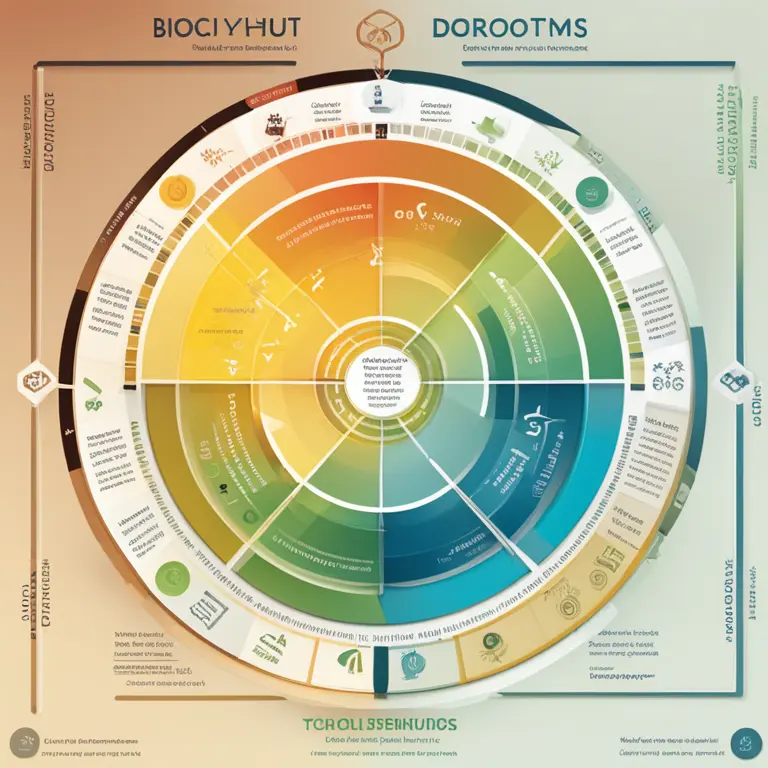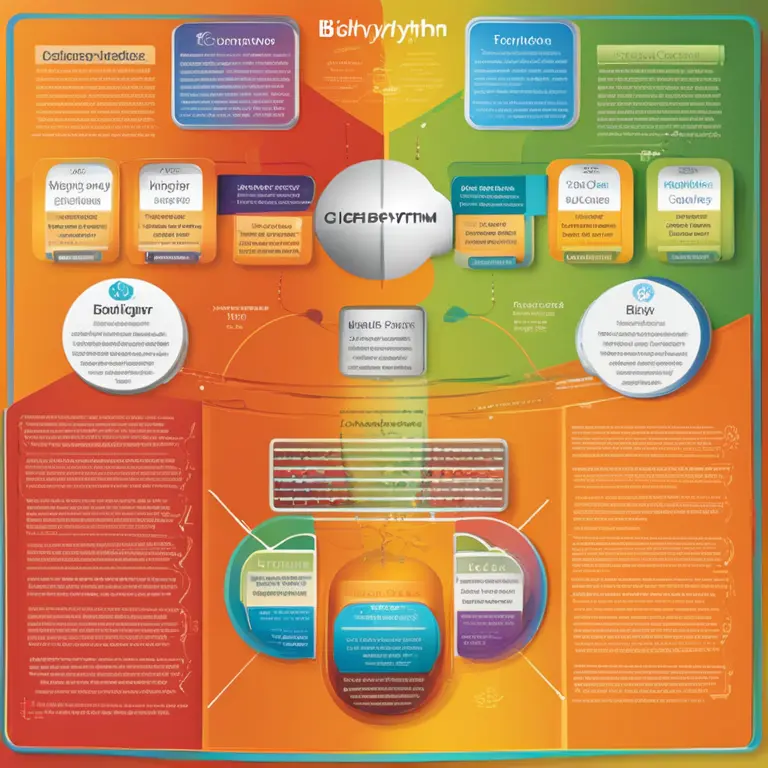
The Rhythms Within: A Guide to Understanding Biorhythms
Delve into the concept of biorhythms to comprehend the cycles that influence our physical, emotional, and intellectual states.
article by Adrian Wallace
What Are Biorhythms?
In essence, biorhythms are the hypothetical cycles that suggest the predictability of a person's capabilities in various areas of their life over time. Rooted in the idea that human life is influenced by rhythmic biological cycles, biorhythm theory divides these cycles into three core types: physical, emotional, and intellectual. Each cycle has a unique duration: the physical cycle is 23 days, the emotional cycle is 28 days, and the intellectual cycle spans 33 days. According to this theory, we traverse high, low, and critical phases within these cycles, which purportedly impact our daily lives.

The History of Biorhythms
The concept of biorhythms can be traced back to the late 19th century, but it gained popularity in the 1970s with the advent of biorhythm calculators. The idea was that by charting these rhythms, one could predict and prepare for times of strength, susceptibility, or critical change. Despite a lack of empirical evidence for biorhythms, and skepticism in scientific circles, fascination with these cycles persists, especially among enthusiasts of alternative and New Age practices as of 2024 and beyond.

How Biorhythms Affect Us
Believers in biorhythms posit that by understanding and tracking these cycles, individuals can optimize their lives. For example, the physical cycle influences stamina, coordination, and wellness; the emotional cycle sways our creativity, mood, and perception; and the intellectual cycle affects analytical functions, reasoning, and memory. Aligning activities to favorable phases—say, scheduling a marathon during a high in your physical cycle or a test during an intellectual peak—could, in theory, lead to enhanced performance.

Calculating Biorhythms
Calculating one's biorhythms involves using one's birth date as the baseline. From there, the number of days lived is divided by the length of the corresponding biorhythm cycle. Various apps and online calculators in 2024 facilitate this process, providing personalized charts that illustrate one's current position in each of the three cycles and predicting upcoming phases.

Critical Days and Biorhythm Readings
Critical days are inferred when a biorhythmic cycle crosses the zero line, signifying a time of unpredictability and potential vulnerability. Enthusiasts of biorhythm analysis believe that being aware of these critical days can serve as a cautionary signal, encouraging extra care or hinting at potential challenges in decision-making, emotional regulation, or physical endeavors.
Modern Perspectives on Biorhythms
As of 2024, while mainstream science generally does not recognize biorhythms as a legitimate theory, the concept has found a place in wellness programs and some personal planning tools, merging ancient ideas with modern technology. This mix reflects the current era's inclination towards personalized data, self-quantification, and a keen interest in alternative wellness.
The Biorhythm Debate
Biorhythms continue to spark debate within both scientific and lay communities. Critics argue that there is insufficient evidence to support the accuracy of biorhythmic predictions, suggesting they may fall into the realm of pseudoscience. Conversely, proponents hold that personal experience and anecdotal reports lend some credence to the theory's practical value, advocating for its utility despite the lack of scientific validation.
Published: 1/30/2024
Modified: 1/30/2024
More predictions
Come back here soon to learn more about yourself and your future


The Rhythms Within: An Insight into Biorhythms
Discover the science and philosophy behind biorhythms, the cyclical patterns our bodies follow, in connection with our physical, emotional, and intellectual states.


Biorhythm Compatibility: Sync Your Cycles for Harmony
Discover the intriguing connection between biorhythms and relationship harmony. Learn how syncing your biological cycles can foster deeper compatibility.


A Guide to Biorhythms Journey
Embark on a journey of self-discovery through the science of biorhythms to optimize your life's potential.